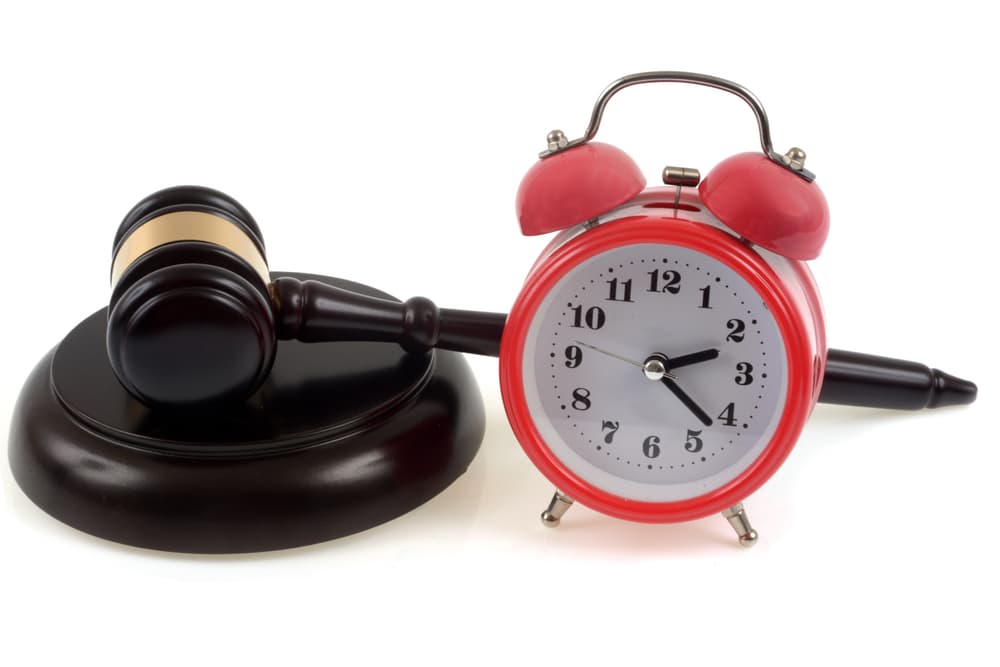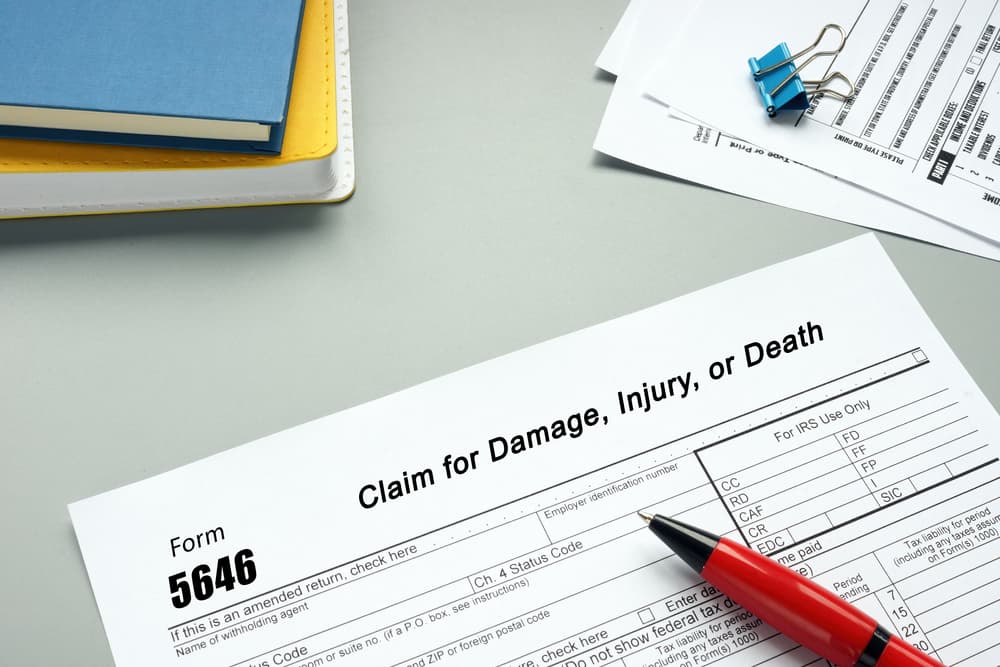Truck crashes cause catastrophic injuries, leading to serious financial implications. In the aftermath, injured victims often wonder, "What can I sue for in a truck accident?" An experienced Wisconsin truck accident lawyer can help you.
Truck Accidents and Personal Injury Claims: What You Need To Know
Understanding if You Have a Claim
The key to knowing what you can sue for after a truck accident is understanding whether or not you have a personal injury claim.
Every state has a different threshold for proving personal injury claims, but most require:
- Proof of negligence: To successfully sue for a truck collision, you must be able to prove that the other party (usually the truck driver or trucking company) was negligent in their actions. This means they failed to exercise reasonable care while driving, and this failure caused your injuries.
- Damages: You must have suffered damages due to the accident to receive compensation for your injuries. These can include medical expenses, lost wages, pain and suffering, and other financial losses.
If you believe these criteria apply to your situation, you likely have a valid personal injury claim and can pursue legal action against the responsible party. Your next step should be to contact a truck accident lawyer for a free consultation of your case.
Filing on Time

Even if you have a valid personal injury claim, it must be filed within a specific timeframe to recover compensation for damages sustained. Known as a Statute of Limitations, these time restrictions vary nationwide.
While some states adhere to a two-year statute of limitations, others, such as Minnesota, give accident victims six years to file. Wisconsin, for example, generally gives three years. Sometimes, the type of vehicle or entity involved in the accident can also affect the filing timeline.
For example, accidents with government or municipal trucks may have a shorter deadline than private commercial vehicles.
Considering how long it takes to recover, come to terms with the trauma, and navigate legal proceedings, it is important to act quickly and not wait until the last minute to file a personal injury claim.
Who is at Fault?
You'll only be able to sue for damages if the other party maintains some or all of the fault for the accident.
Truck accidents that typically put the other driver at fault include:
- Rear-end accidents: When a truck rear-ends another vehicle, you can hold the truck driver at fault, especially if they broke the speed limit or followed you too closely.
- Failure to yield: If a truck fails to yield at an intersection and causes an accident, you can hold at fault for the resulting damages.
- Improper lane changes: Truck drivers must use their signals and check their blind spots before changing lanes. Failure to do so can result in accidents where you can hold the truck driver responsible.
- Distracted driving: Truck drivers who are texting, eating, or engaging in other distractions while driving may cause accidents for which you can hold them liable for compensatory damages.
Because fault is a crucial factor in determining the success of a personal injury claim, gather evidence from the accident scene and work with an experienced attorney who can help prove liability.
Compensatory Damages After a Truck Accident
Medical Expenses
If the other driver is found liable for the accident, you may recover compensation for any medical expenses incurred because of your injuries, including but not limited to:
- Ambulance fees
- Emergency room visits
- Hospital stays
- Surgeries and other medical procedures
- Medications and ongoing treatment costs
To receive compensation for medical expenses, keeping detailed records of all related healthcare expenses and providing them as evidence in your personal injury claim is important.
Lost Income, Wages, and Earning Potential
Truck crashes can result in significant injuries that require victims to take time off work for recovery. In some cases, these injuries may leave victims unable to return to their previous line of work or result in a decreased earning potential.
Proving lost income and wages can be complex, but with the help of a personal injury lawyer, you may be able to recover workers’ compensation for any time missed or diminished earning potential due to your injuries.
Pain and Suffering
Pain and suffering are considered non-economic damages that are not as easily quantifiable as medical expenses or lost income.
However, if you have experienced significant physical pain, emotional distress, or a decrease in quality of life as a result of the accident, you may be able to seek compensation for these damages.
Every state differs in how much they allow for non-economic damages. Some states have no caps on these damages, while others have specific limits.
A truck accident lawyer can help you understand your state's laws and how to maximize your compensation for pain and suffering.
Wrongful Death Damages

In the tragic event that a loved one died in a truck crash, surviving family members may file a wrongful death claim against the responsible party.
Wrongful death damages can include:
- Funeral expenses
- Loss of financial support
- Loss of companionship and consortium
- Medical expenses incurred before death
In addition to these damages, surviving family members may also be able to seek compensation for the pain and suffering experienced by their loved ones before passing.
Not all states allow for wrongful death damages in truck accident cases. An experienced personal injury lawyer can explain your state's laws and provide guidance on the best course of action to seek justice and compensation for your loss.
How Much Does a Truck Accident Cost?
By understanding the costs associated with truck crashes, you can get a better idea of claimable damages for current and future expenses:
- Traumatic Brain Injury: The average cost for a minor brain injury is $85,000 and as much as $500,000 in severe cases. These injuries total between $1 and $3+ million over a lifetime.
- Spinal Cord Injury: Injuries to the spinal cord can result in lifelong complications and costs. The first year after an accident can cost upwards of $1 million, with subsequent years averaging around $200,000+ annually.
- Fractures and Broken Bones: Depending on the severity of the fracture, upfront treatment costs can range from a few thousand dollars to $50,000+. If surgery is necessary, the cost varies between $50,000 and $100,000+ per bone.
- Neck Injuries: Common injuries include whiplash or damage to the soft tissues in the neck. The average cost of treatment is around $30,000, not including years of physical therapy or lost earning potential.
- Internal Injuries: Damage to internal organs can be life-threatening and require immediate medical attention. Costs for treatment can vary between $30,000 and $100,000+.
- Post-Traumatic Stress Disorder (PTSD): Any truck collision can have a lasting impact on mental health, resulting in PTSD for some victims. Costs for treatment and therapy can range from $3,000 to $30,000+. These costs are even higher when victims develop driving-related phobias.
Combine these common truck accident costs with tens or hundreds of thousands of dollars in medication, medical devices, and in-home care costs, and you can see how quickly expenses can add up.
Personal injury lawyers understand what these injuries cost and how they can burden accident victims decades down the road. By choosing an experienced truck accident attorney, you have the best chance of receiving the full and fair compensation you deserve for all of these costs and more.
What Can You Not Sue For in a Truck Accident?
While a personal injury claim can recover many damages, you cannot sue for others, including:
- Emotional distress caused by witnessing the accident (unless you were directly involved)
- Property damages that exceed your state's monetary limit for small claims court
- Damages that you caused
- Pre-existing medical conditions or injuries the truck accident did not directly cause or worsen
If circumstances may limit or prevent you from seeking compensation for certain damages, you may pursue others.
An experienced truck accident lawyer can evaluate all aspects of your case and explain your options for seeking the maximum compensation for your losses.
Where Do Truck Accidents Happen?
Intersections
Throughout the USA, intersections remain the most common area for truck accidents. This is because vehicles must navigate through the constant flow of traffic and varying speeds to keep in line with other drivers.
Common truck collisions at intersections include:
- The truck driver ran a red light
- A truck made an illegal turn in front of you
- The truck passed through an intersection that was foggy, poorly lit, or not properly maintained
If one of the above caused your accident, you may file a claim against both the truck driver and the entity responsible for maintaining the intersection.
Rural Areas

Rural roads are often narrow, winding, and not designed to handle large commercial trucks. This makes them more prone to accidents when truck drivers do not exercise caution or properly navigate these areas.
Common rural truck accidents include:
- Rollovers on sharp turns or uneven roads
- Head-on collisions with other vehicles
- Accidents caused by poorly maintained roads, such as potholes or inadequate signs and warnings
Furthermore, a lack of maintenance for these roads can make it difficult for trucks to stop or maneuver, leading to more serious and damaging accidents. However, even this negligent road maintenance can be grounds for a personal injury claim against the responsible party.
Construction Zones
The nature of construction zones can make them dangerous for large trucks. These areas often have reduced speed limits and narrow lanes, making it difficult for truck drivers to maneuver safely.
Common truck accidents in construction zones include:
- Rear-end collisions with other vehicles
- Collisions with construction equipment or barriers
- Accidents caused by distracted driving while navigating through the construction zone
If a truck accident injured you in a construction zone, a lawyer can determine who was responsible for the safety of that area. This could include the construction company, trucking company, or even government entities responsible for maintaining road conditions and safety regulations.
Highways
Highways are a common location for truck accidents due to the high speeds and heavy traffic they experience. Truck drivers may face pressure to meet tight delivery deadlines, leading them to drive at unsafe speeds or engage in other reckless behaviors.
Common highway truck accidents include:
- Jackknife accidents caused by sudden braking
- Underride collisions where a smaller vehicle gets trapped underneath the truck's trailer
- Tire blowouts causing a loss of control for the truck driver
If a truck accident injured you on the highway, a lawyer can determine if any contributing factors, such as driver fatigue, vehicle malfunctions, or inadequate safety regulations, played a role.
A commercial truck accident attorney can investigate these factors and hold all responsible parties accountable for your injuries and losses.
Residential Neighborhoods
Truck collisions may also occur in residential neighborhoods, often causing significant damage and injuries. This can happen when truck drivers take shortcuts through these areas or make deliveries to homes or businesses.
Common truck accidents in residential neighborhoods include:
- Accidents caused by oversized trucks on narrow roads
- Backing up into other vehicles or pedestrians
- Impact from falling debris or improperly secured cargo
Just because the accident happened in a residential area does not absolve the truck driver. An experienced truck accident lawyer can determine liability and hold negligent drivers accountable for their actions.
Do You Have a Truck Accident Claim? Get Maximum Compensation With Experienced Accident Attorneys
After a truck crash, you can sue for many damages, including medical bills, lost wages, property damage, and pain and suffering.
However, it is essential to understand the limitations and restrictions that may apply in your specific case.
So, stop wondering, "What can I sue for in a truck accident?"
Contact a personal injury attorney for your free case evaluation to learn about your right to full and fair compensation.
